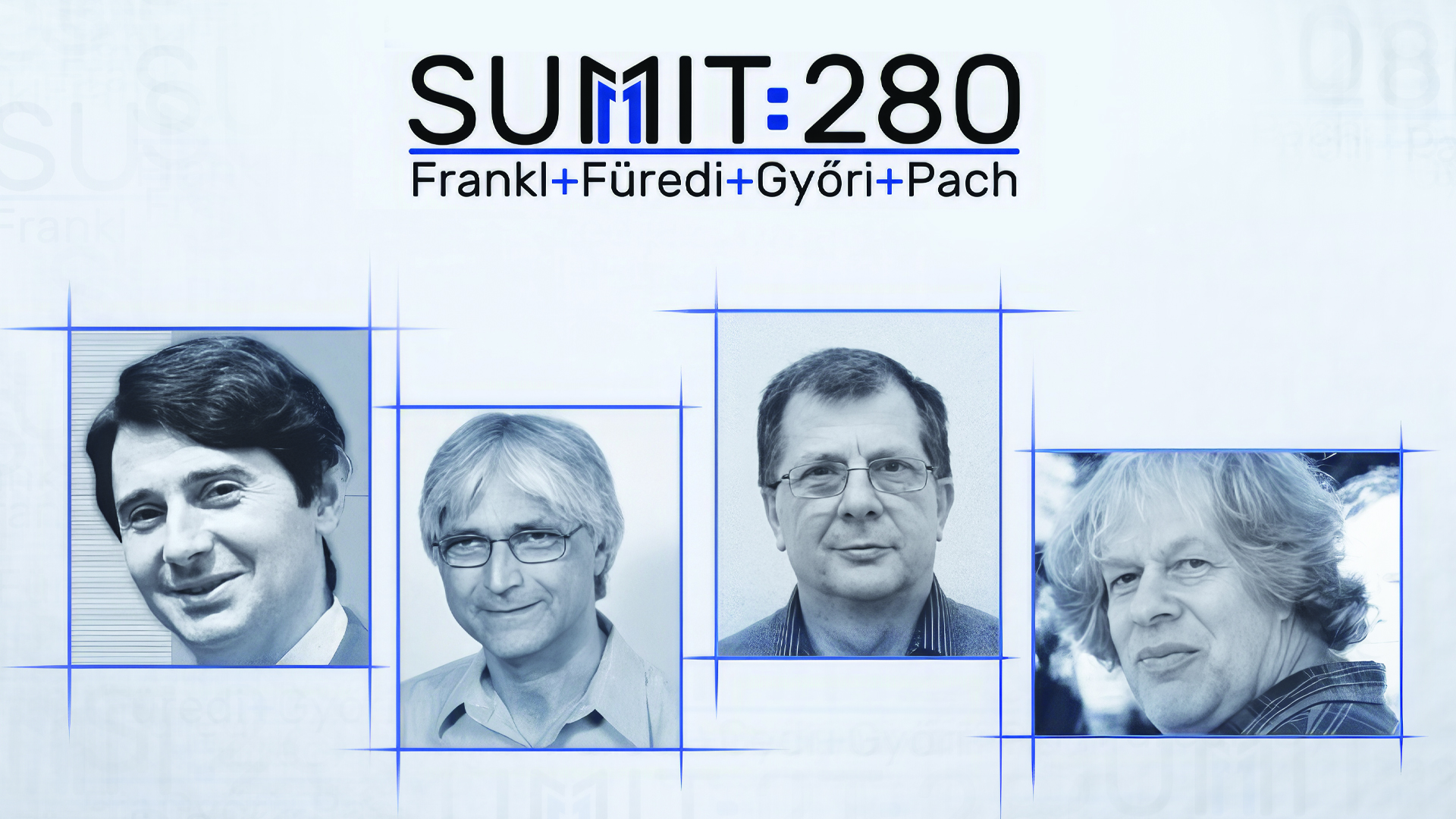Top Combinatorialists Celebrate Four Outstanding Hungarian Mathematicians in Budapest
The Sum(m)it 280 mathematics conference in Budapest, jointly organised by the HUN-REN Alfréd Rényi Institute of Mathematics and the János Bolyai Mathematical Society, brought together over 200 guests from around the world to honour the work of four world-renowned Hungarian mathematicians: Péter Frankl, Zoltán Füredi, Ervin Győri, and János Pach. The event was opened by Wolf Prize laureate Professor Noga Alon.

"The title is a play on words, as the four mathematicians are all celebrating their 70th birthdays, which adds up to 280. Additionally, 'Sum(m)it' suggests both a summit meeting and the idea of adding up the numbers," explained Dezső Miklós, a mathematician and one of the conference organisers. Zoltán Füredi, Ervin Győri, and János Pach currently work at the Rényi Institute, and all three are members of the Hungarian Academy of Sciences (HAS). Péter Frankl, a member of the HAS public body, has been working in Japan since 1988. Together, they have authored a total of 1,459 high-impact papers.
The five-day conference featured more than 100 presentations, primarily on combinatorics, graph theory, and discrete geometry. Of the 12 plenary speakers, eight were former students of the honourees, who have since become distinguished mathematicians themselves. The keynote speakers were Noga Alon, a professor at Princeton University and Tel Aviv University, and László Lovász, a research professor at the HUN-REN Alfréd Rényi Institute of Mathematics.
"Hungarian mathematics is highly regarded worldwide, with discrete mathematics as its crown jewel: it has been, is, and we hope will continue to be a world-class field in Hungary. Just think of Endre Szemerédi and László Lovász, both recipients of the Abel Prize—often considered the Nobel Prize of mathematics—who achieved their great success through research conducted in Hungary," Dezső Miklós told the HUN-REN portal. He was also asked about the extent to which artificial intelligence has penetrated this field of science.
As we learned, a growing Artificial Intelligence Group at the Rényi Institute is actively exploring the full spectrum of where and how AI can be utilised. There are two key aspects to this endeavour: researchers are trying to 'persuade' AI to prove mathematical theorems. Although this is not yet feasible, the new technology is already being used to solve auxiliary tasks that exceed the finite capacity of the human brain. In short, AI can assist, but—at least for now—it cannot solve these problems on its own.

